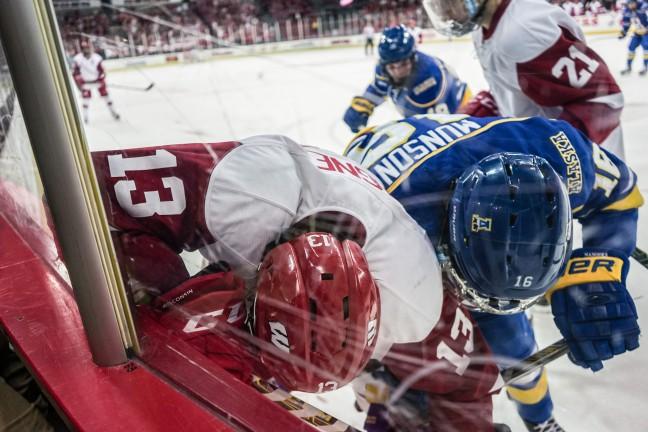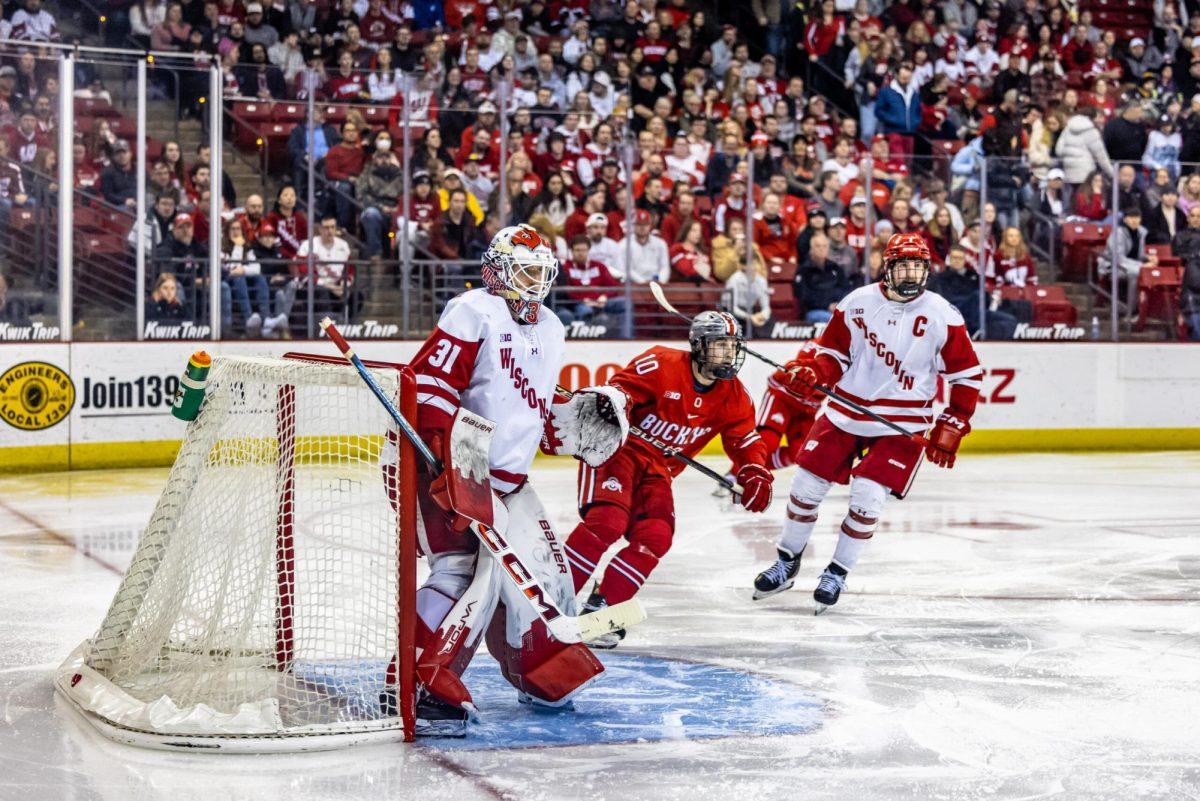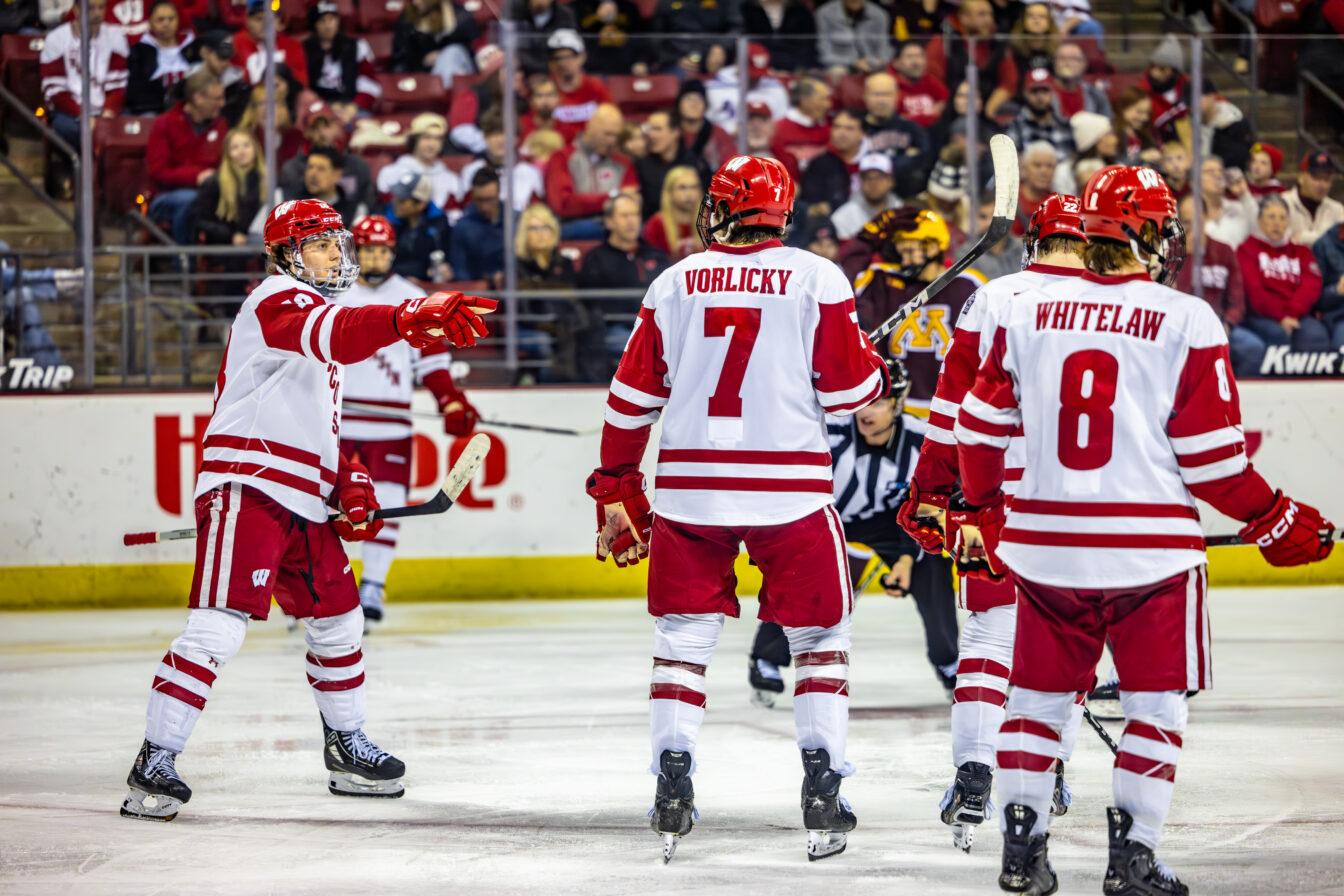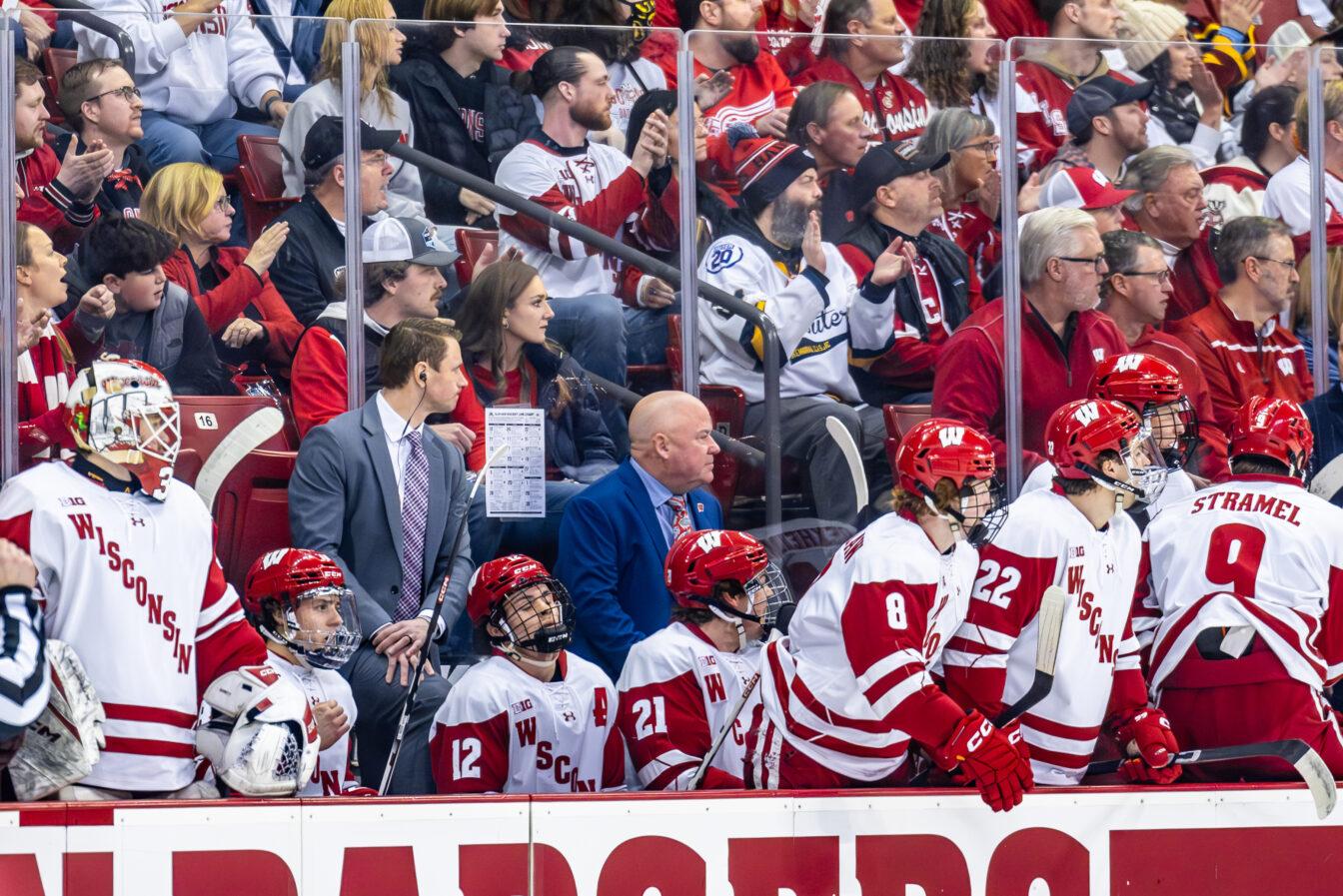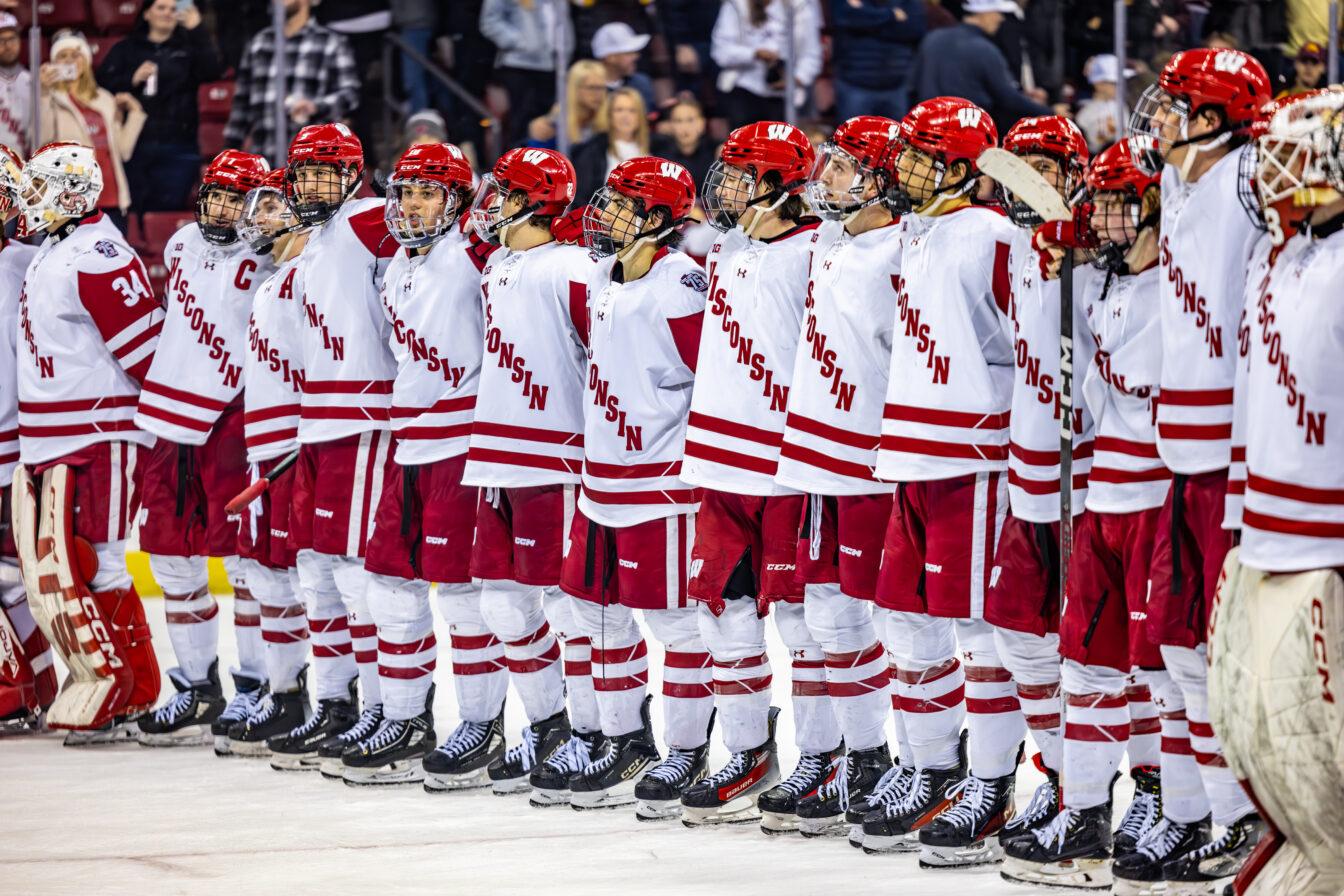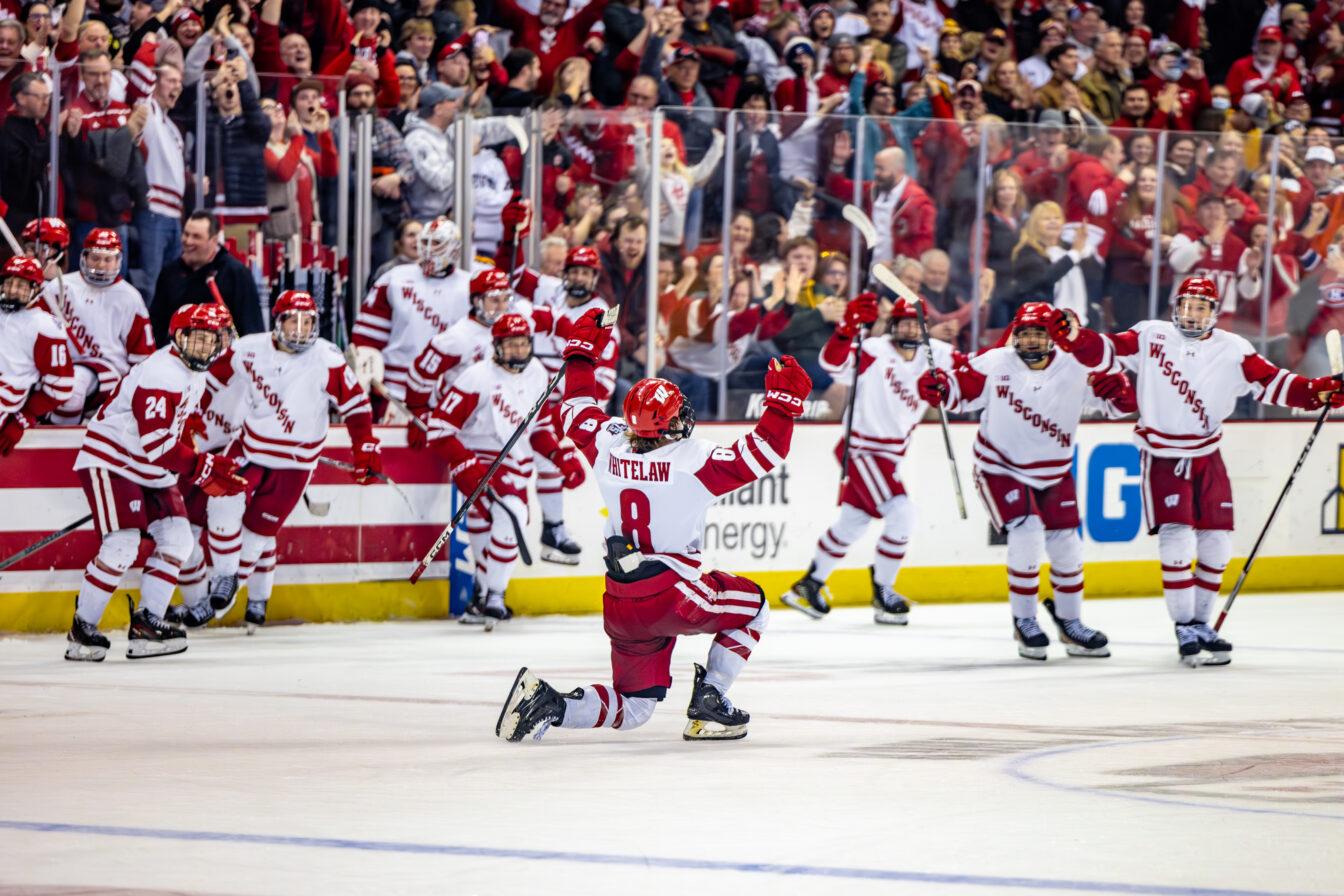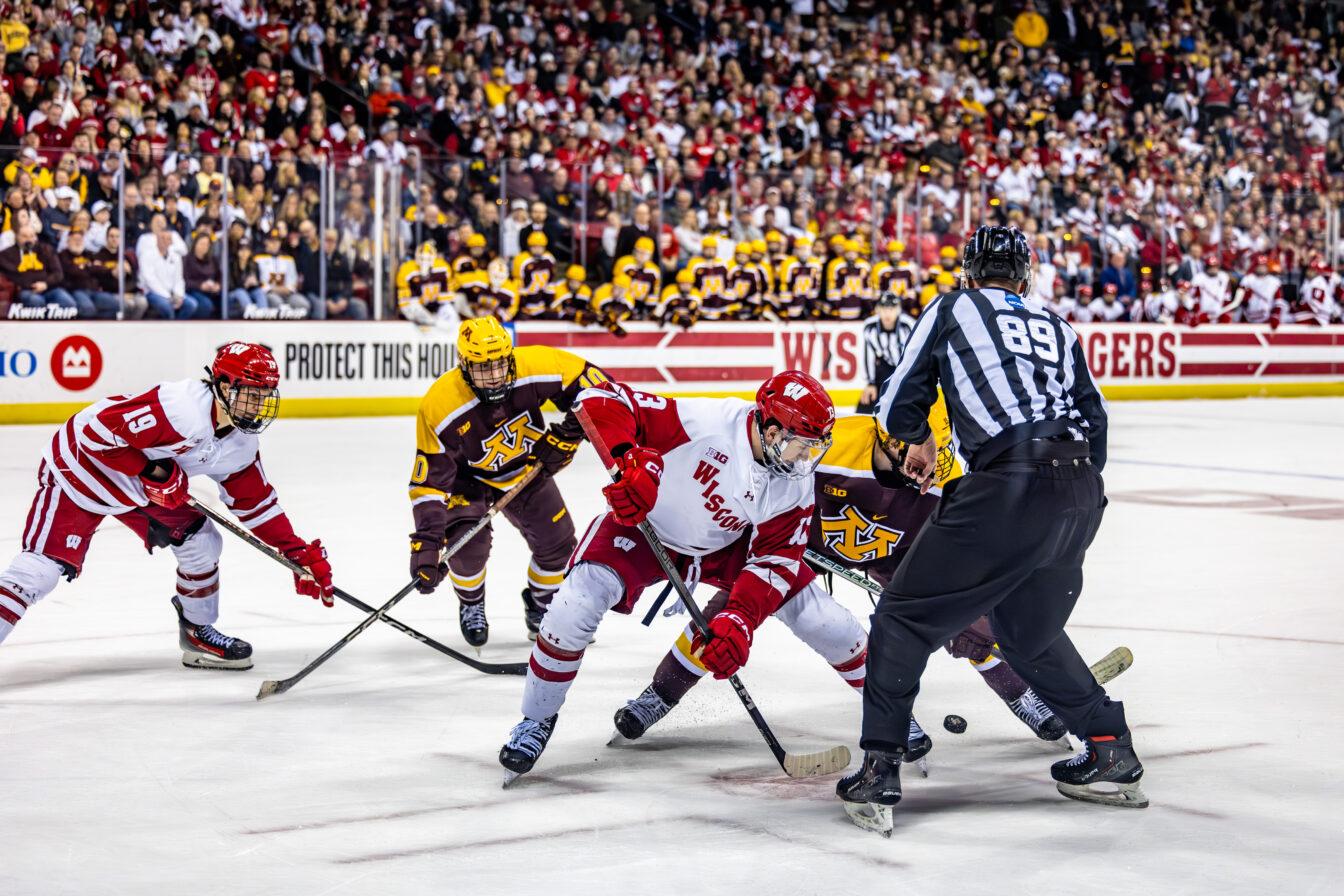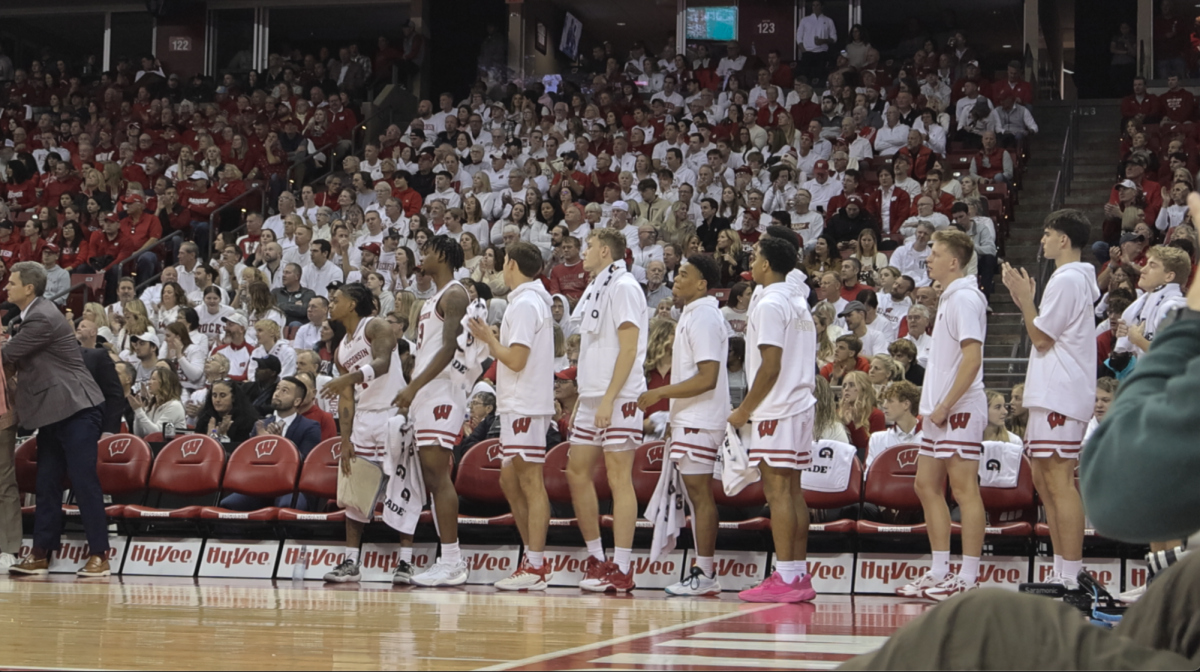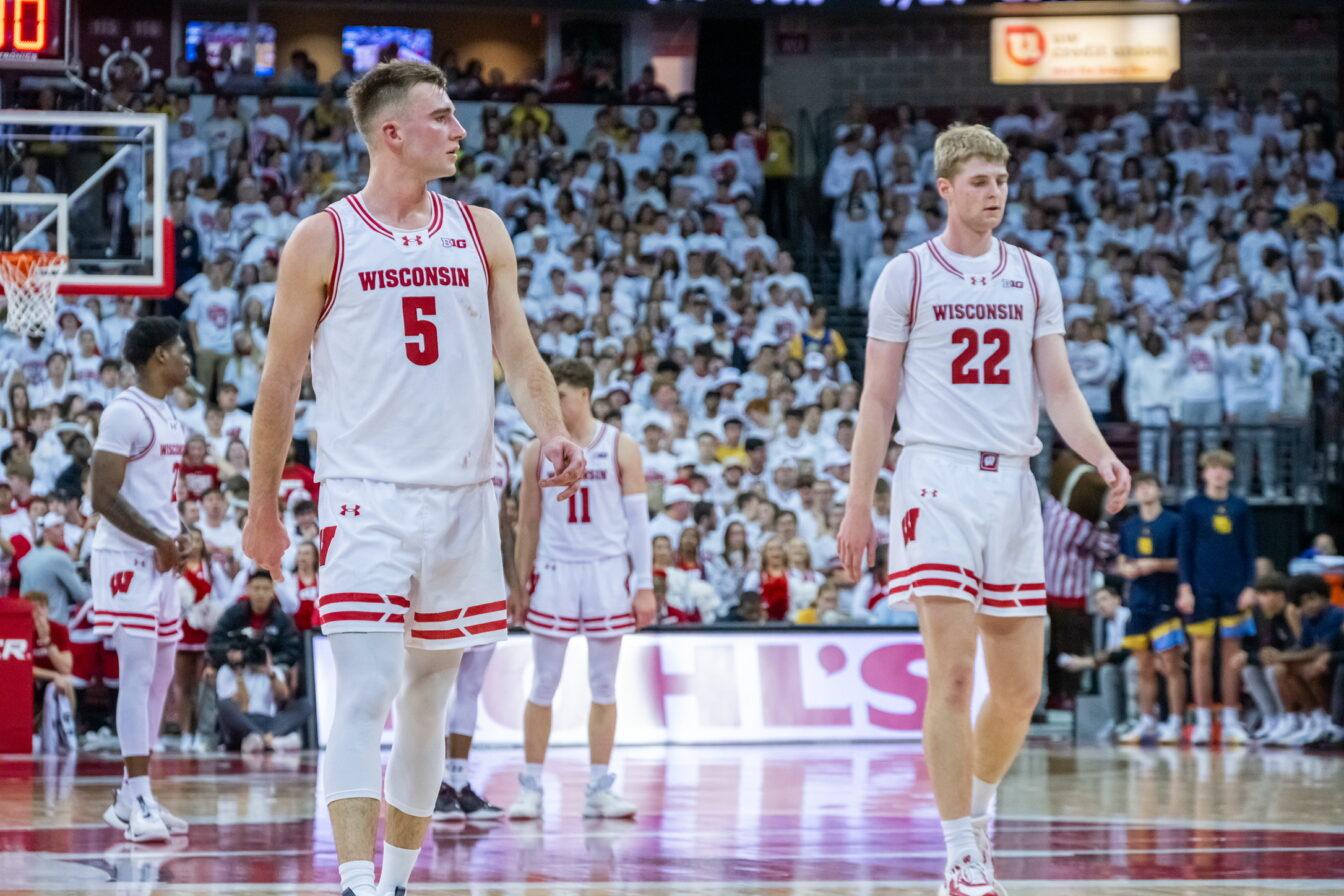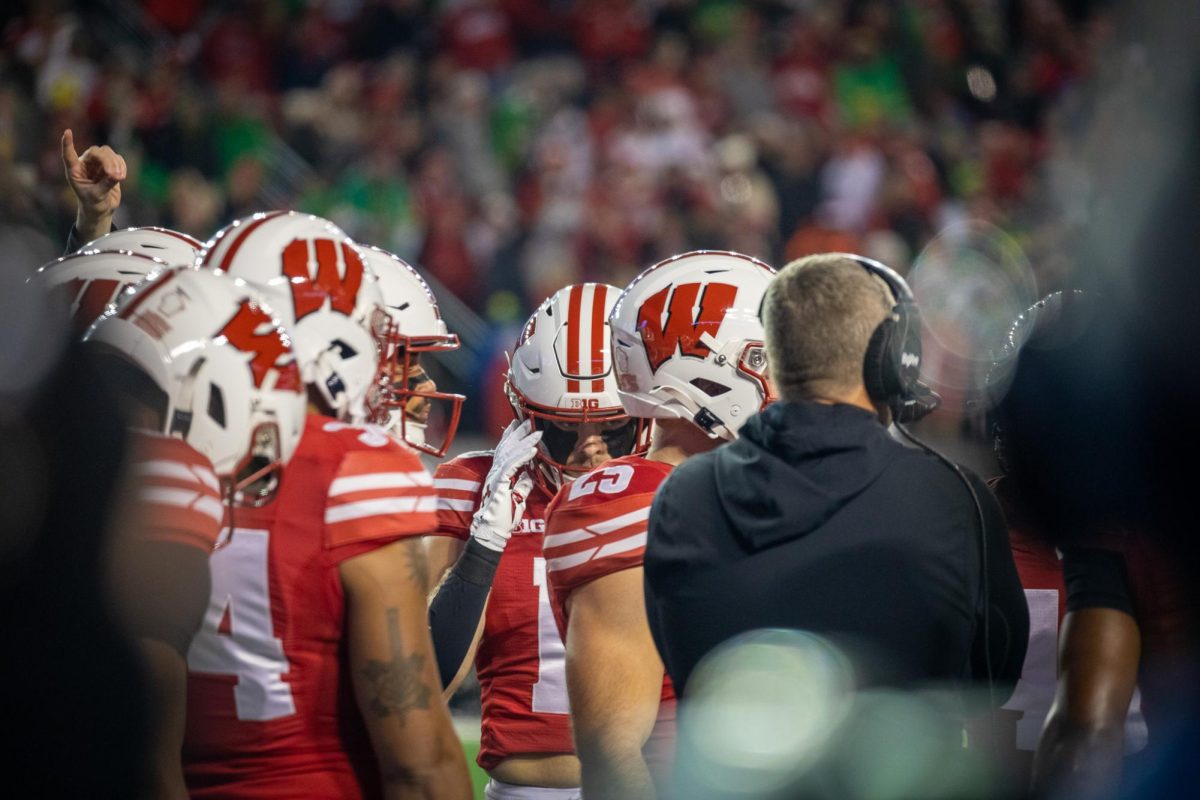The Wisconsin men’s hockey team has had a rollercoaster-type season thus far. The young Badger squad has gone from wins over the nation’s best teams to tough losses against teams normally not thought to be competitive opponents.
But despite all the inconsistency, the real learning curve for the team has come in the penalty box.
Three key players over the last few weeks have received at least one-game suspensions from the NCAA for dangerous hits: senior alternate captain Eddie Wittchow and junior wingers Jedd Soleway and Aidan Cavallini. Wittchow’s three-game suspension for a hit to the head against Minnesota was a particularly brutal blow for the team, as he was forced to sit out an entire series against Alaska and one game against Michigan.
“I obviously understand the suspension and you hate to see someone get hurt,” Wittchow said. “I had no intent to hurt on that play and I thought the league was a bit lofty in giving me three games.”
Wittchow questioned the consistency in some of the suspensions, citing how punches have been thrown and the players responsible have seen reduced penalties since he was suspended.
Head coach Mike Eaves said the situation is unfortunate, seeing as a lot of NHL guys like the physicality and toughness Wittchow brings to the ice, but the senior is still learning how to tame that aggressiveness.
“[Wittchow] is a physical player and this isn’t the first one of these [suspensions] he’s had,” Eaves said. “But he has to learn to walk that fine line because he is such an imposing defenseman.”
This chronic issue of being too aggressive on defense has plagued Wisconsin all season, racking up more than 12 penalty minutes per game and 118 minor penalties. The penalty minutes per game stat for the Badgers is almost an entire minute higher than the NCAA average of 11.4.
These numbers are in direct opposition to the ongoing trend that penalties are rapidly declining in college hockey.
“It’s on the defensive player in today’s game,” Eaves said. “You can’t lead with your head and you can’t hit a defenseless player. Back in the old days this wasn’t the case, but this is a new era and we have to adapt.”
What is most alarming for Wisconsin is the three worst offenders in penalties have been all upperclassman. Out of only six upperclassman, four of them are the most penalized players on the team.
This development puts the issue of big hits on the forefront of the team’s agenda in practice.
“You hate to see this issue come up, but we’ve been doing a drill that is designed to get players to think about these kind of hits,” Eaves said. “In meetings and on the ice, it’s been addressed.”
Even with the pretty serious fall in total penalty minutes in the NCAA from 15.7 in the 2002-03 season to only 11.4 this season, the NHL has dropped even more in the same time period (14.1 to 9.5). While some believe the dip in calls simply stems from a new breed of less strict referees, many around both leagues believe players are adjusting to meet the standard of cleaner hockey.
The Wisconsin team isn’t extremely worried about what they’ve seen.
“No player is going to complain about the NCAA trying to protect the us,” Wittchow said. “I’m a player too, I’ve had a concussion before and I have no problem with them cracking down.”
In 2014-15, men’s college hockey players self-reported the second most concussions of any sport. Even though concussions in men’s hockey haven’t amounted to the head injuries epidemic present in women’s hockey, the NCAA has made it a point of interest to crack down on any hits on or around the head.
But for Eaves, he hasn’t noticed much change in how games are being officiated, and doesn’t see that any change is necessary.
“I haven’t really been noticing any changes this year,” Eaves said. “It has been the way its been since about five to six years ago when they started calling more hits from behind. Every year we have about one or two suspensions and we don’t see it as a huge problem.”
Whatever the fix may be, the Badgers need to tighten up on penalties and hope some nagging injuries like the lower body injury to freshman Paxton Sexton heal up in the final stretch of this season.
With a difficult Big Ten schedule remaining and an NCAA tournament bid far from reach without a conference championship, Wisconsin needs everyone to step up, regardless of the impact the rules are having on them.
“All I know is that when I start thinking about what I can and can’t do in a game, that’s when I get into trouble,” Wittchow said. “Our motto this year has been rest, recover and improve — and that’s what I’m doing.”


